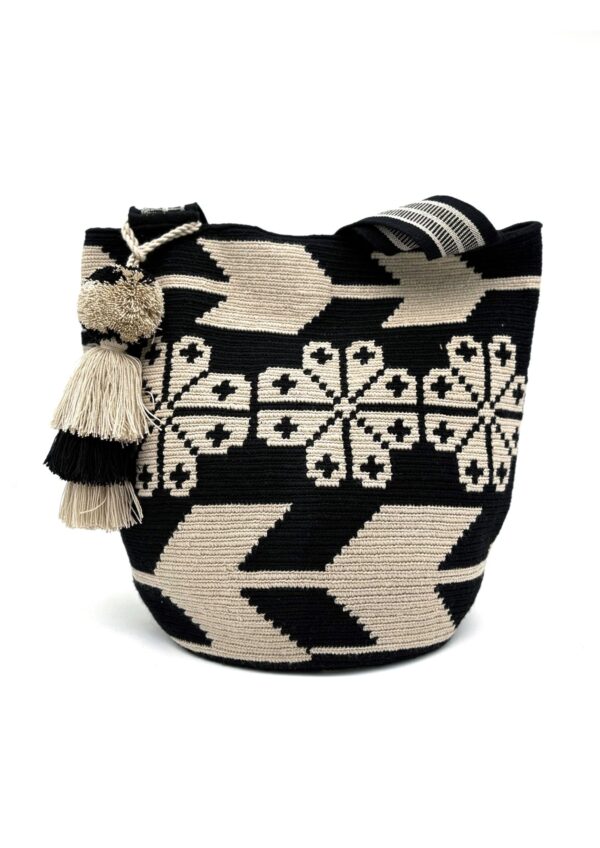How Woven Wildly’s Mochilas Create Pathways to Education, Energy, and Community-Led Resilience
It’s tempting to believe a single purchase can “save” a community. It can’t — and that’s not the point. The mochila was never meant to be a lifeline. It is, instead, a bridge. A bridge woven by the hands of Indigenous women, strengthened by trust, and built to carry something far more valuable than charity: choice.At Woven Wildly, the story doesn’t end at checkout. The real work begins in the conversations that follow — when artisans decide how the profits are used, and when those decisions ripple into classrooms, kitchens, and weaving circles.
1. From Purchase to Pathway
Every mochila takes months to make. From spinning the fiber to finishing the last stitch, it’s a process shaped entirely by the women themselves. When it’s sold, the profit doesn’t vanish into a far-off company ledger. It stays here. It becomes solar panels for a weaving house. It buys textbooks for forty Indigenous children in a school high in the mountains.One Kogui artisan told us:
“When the world didn’t answer, we started weaving our own voice.”
That voice grows louder with each sale — not because outsiders told them what they needed, but because the women chose for themselves.
2. Real Impacts, Not Empty Promises
We’ve seen what this looks like in numbers:Education: Dozens of students receiving schoolbooks, uniforms, and meals without relying on fluctuating government aid.Clean Water: Water filtration systems built to serve entire villages.Energy: Solar arrays replacing costly and polluting diesel generators.These aren’t abstract “causes.” They’re decisions made in community meetings, with every peso accounted for. And when the work is finished, it’s the women who walk into those spaces, flip the switch, and see the lights turn on.
3. The Heart Behind the Hands
To watch a mochila being woven is to watch a story take shape. Threads loop and tighten, colors stack into symbols passed down for generations. There’s no rush — not because time doesn’t matter, but because meaning does.An Arhuaco elder once explained:
“The patterns are messages. They tell where we come from, where we are, and where we must go.”
Selling a mochila isn’t just about moving a product; it’s about carrying those messages further
4. Partnership Over Pity
Ethical fashion isn’t about feeling good because you “helped.” It’s about stepping into a relationship where both sides hold value, agency, and dignity. For us, that means standing beside these women, not in front of them, and ensuring their work is recognized as the skilled, cultural, and economic force it is.A mochila doesn’t save anyone. But it can open doors — to education, to electricity, to clean water, to opportunity. The women walk through those doors on their own. Our role is simply to keep them unlocked.
5. Closing Reflection
A mochila can’t be a lifeline. But it can be a start — a start shaped by skill, powered by culture, and chosen by the very hands that wove it.As one Wiwa artisan told us during a visit: “We don’t want charity. We want to work. This is our way.”And that’s the truth we carry in every thread.
We share this story as Woven Wildly — a living collaboration with Indigenous communities of the Sierra Nevada de Santa Marta. We don’t just sell mochilas. We carry culture.Thank you for reading, for caring, and for helping preserve what matters.

This is what it’s really about — not just what we carry, but who we carry it for.
Every mochila sold helps keep these communities strong, self-sustaining, and seen.




